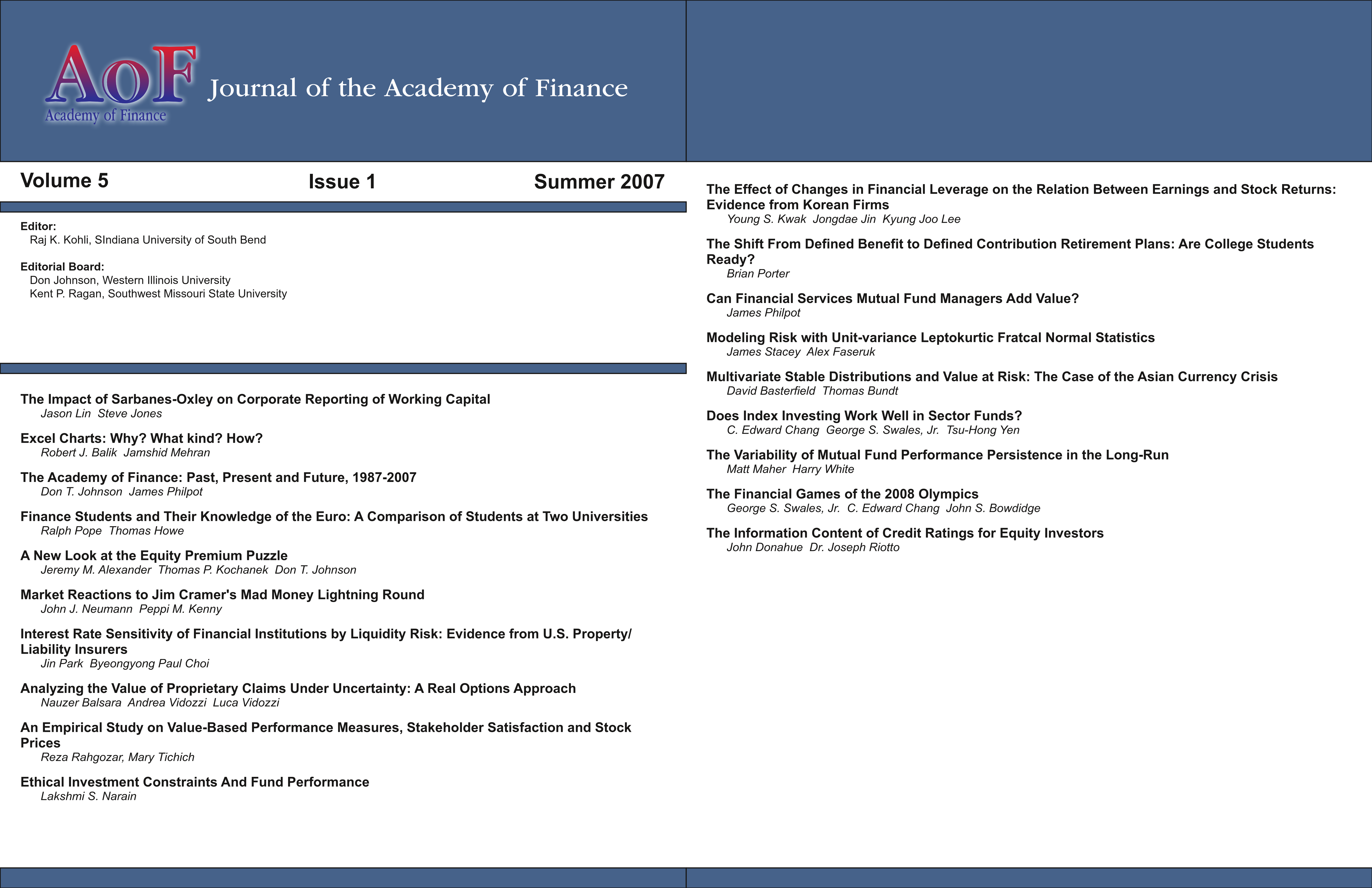The Impact of Sarbanes-Oxley on Corporate Reporting of Working Capital
DOI:
https://doi.org/10.58886/jfi.v5i1.2582Abstract
The Sarbanes-Oxley Act was passed in July 2002 in response to a few high profile of accounting scandals in publicly-traded companies. Among other provisions created to prevent such scandals is Section 404, which requires the executives of publicly-traded companies to formally state their responsibility for the company's system of internal controls and assess the effectiveness of those internal controls as of the end of the fiscal year. Internal controls, though perhaps costly, should theoretically improve management's ability to monitor business processes and make better decisions. It is this latter benefit that may be the hardest to recognize, and the one that this study hopes to identify. This study indicates that Sarbanes-Oxley may have led to progress in the area of working capital management. However, the results could have been influenced by other factors implicit in the business environment. As more time passes, a more definitive trend should emerge. To fully understand the impact of Sarbanes-Oxley, further research will be needed.





